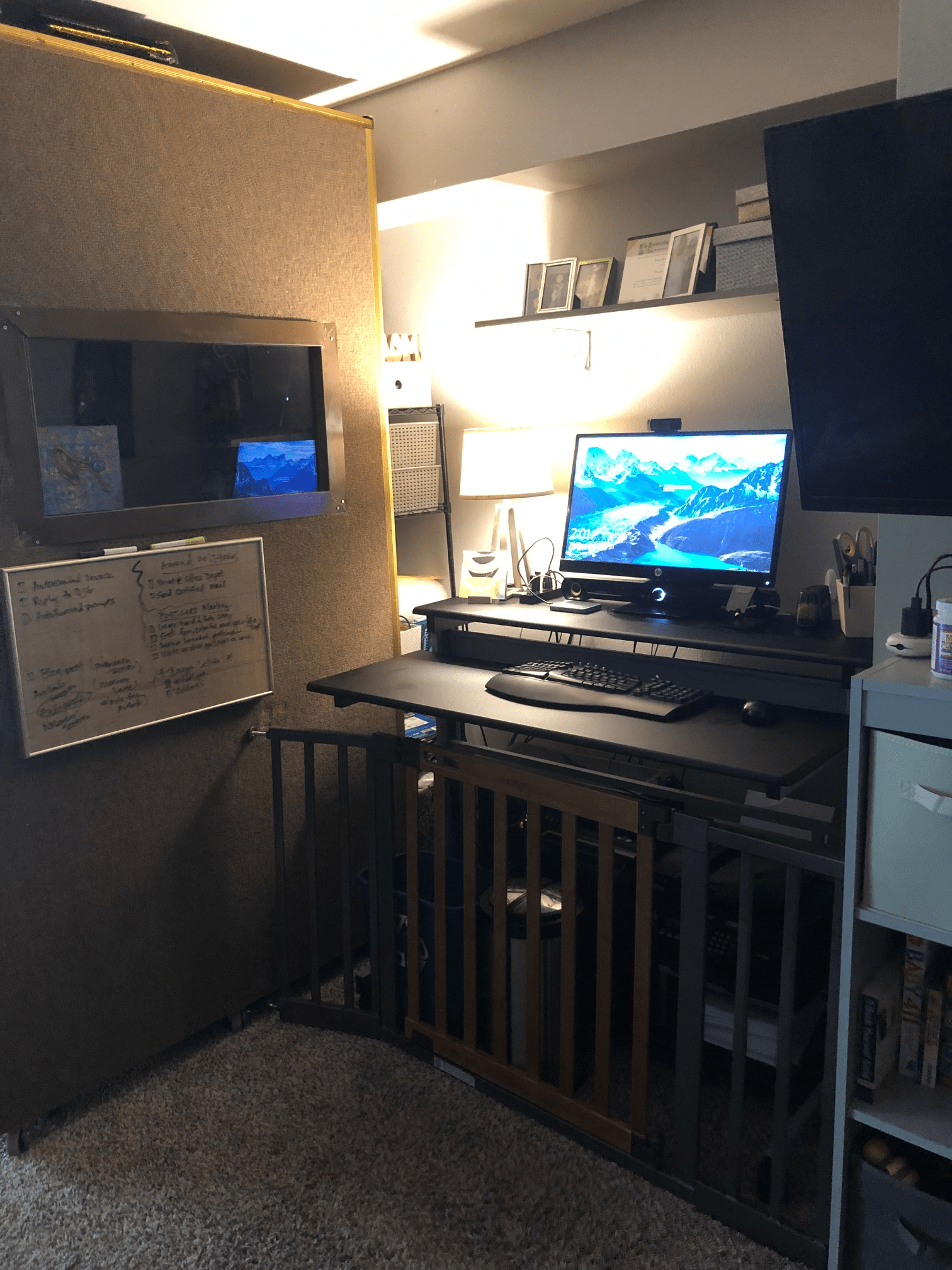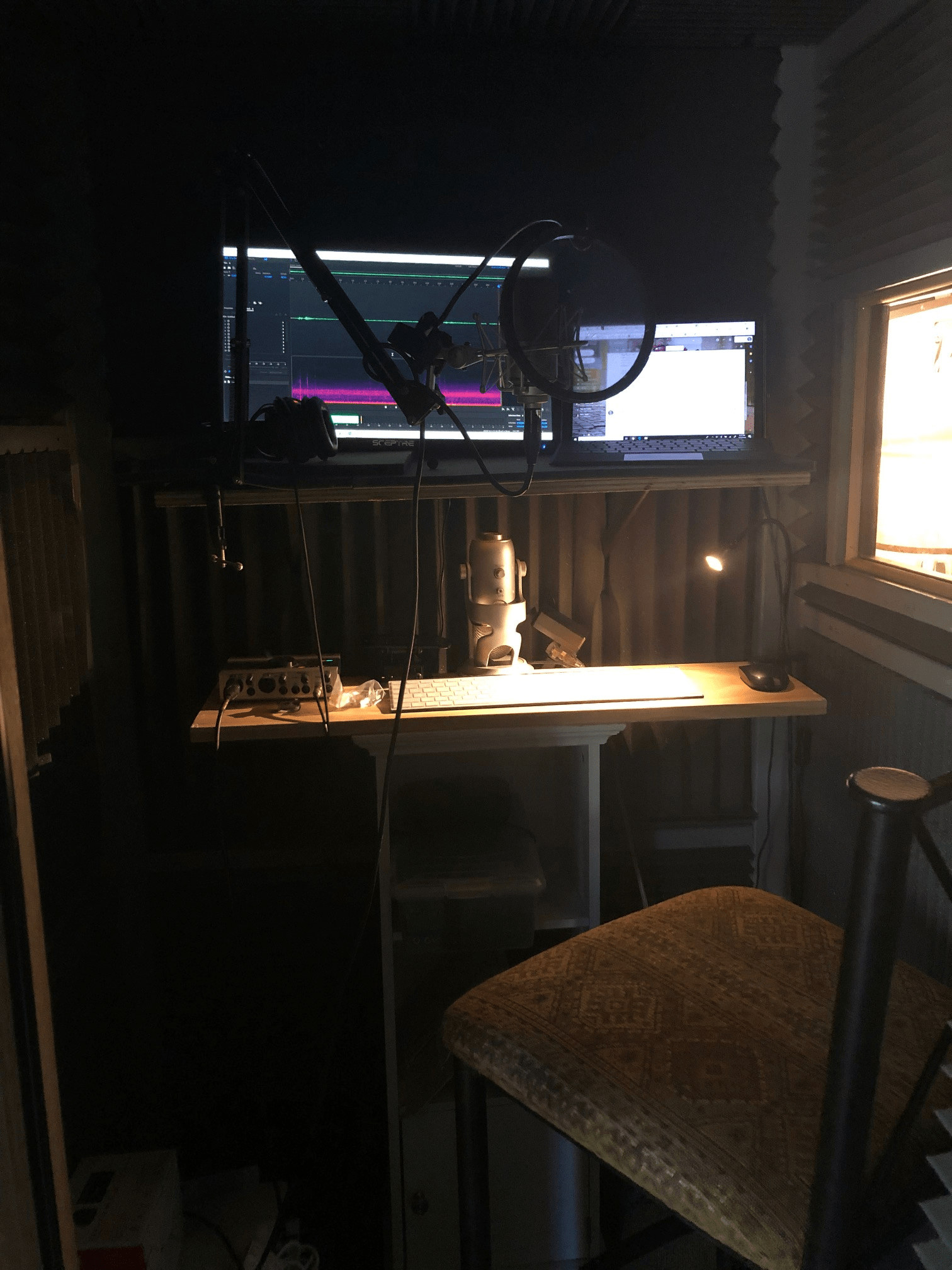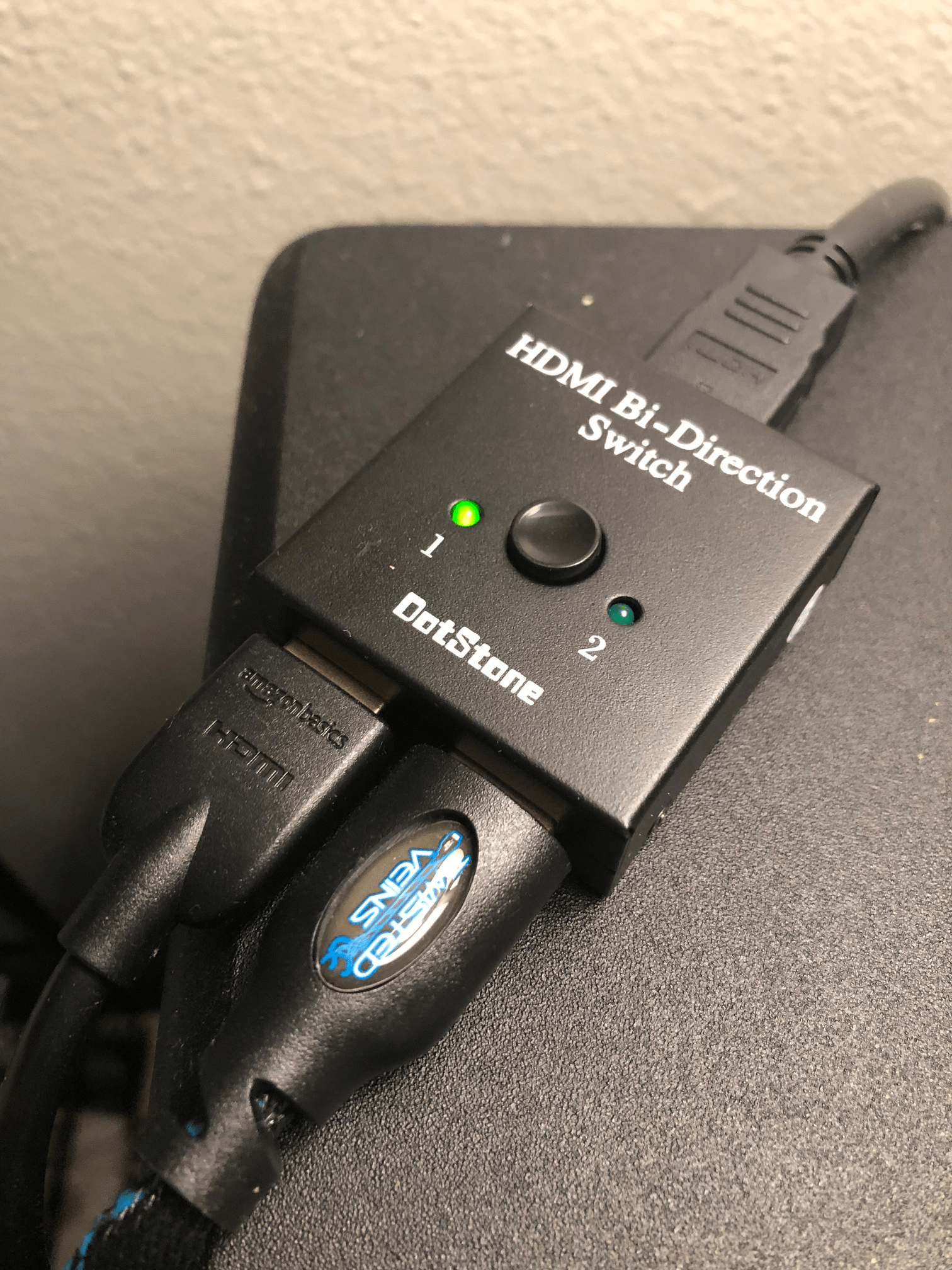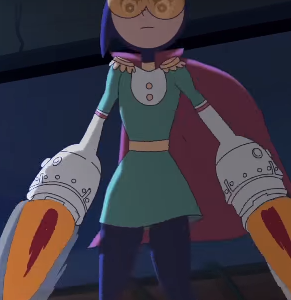
5 Steps I’ve Uncovered to do Audiobooks
- Voiceover
- audio books, audiobooks, Naomi Mercer McKell, Voiceover, work in audiobooks
- August 2, 2019
In 16 years now (!) of doing voice over work professionally, I never had the desire to do audiobooks. The jobs I usually take can be completed in anywhere from 10 minutes to about a day. So I just assumed I didn’t have the attention span for a several hundred page novel.
But over the years, I’ve voiced short stories for The Drabblecast (because I love them so!) and I started to notice I have a style/brand for narrating stories. Maybe it’s something I might enjoy after all?
I’m a member of a voice over Facebook group that has a lot of professionals that do audiobook work. Reading about colleagues discussing audiobooks further intrigued me. So I started asking questions and getting advice from some of the best audiobook narrators out there. I kept reading about this technique called “punch and roll” but I knew Adobe Audition, the DAW I swear by, didn’t offer that feature. Then, right around the time I was investigating, they added it! So that was no longer holding me back.
After years of no desire to do audiobooks and never receiving audiobook auditions, I randomly got an audition through my LA agent for a podcast to read published stories. They were specifically asking for audiobook narrators. I submitted for it and ended up booking the job but I was 37 weeks pregnant and couldn’t fly until after I had my baby. They wanted me in LA to record so I had to turn it down. STILL, I took it as a sign that it was time to pursue doing audiobook work, as it just seemed to keep presenting itself as an opportunity.
Randomly again, just a few weeks after I had my baby, I got an audiobook audition from another agent! I booked that one too. I learned from my Facebook group that I’d need to change some things up in my studio configuration. I figured I would wait until I had an audiobook to do before I invested any time or money into that. So, here we are.
The audiobook I was hired to do paid next to nothing. I’ve learned that the base pay for audiobook work starts at $225 per finished hour. This job paid $200 per finished hour so it was even less than that. But, if I took a class on audiobook work, I would have to PAY to learn the ropes. I decided to look at the job as my class. A way to throw myself into the fire and force me to learn a workflow that worked for me.
I have an editor that I hire regularly to edit my work. I used to edit all of my own VO. But, with two kids under 2 years old, I have to outsource as much as possible, so I brought him on board for the project. I didn’t mention it to the producers because it just never came up but I certainly would have disclosed the information if they asked. Anyway I paid him $25/hr, which is a screaming deal.
Before I fall to pieces in this post lamenting on the rate amounting to less than community theater, let me first comment on the creative process…
It has been CRAZY rewarding for me to work on this audiobook. I feel really lucky that I was cast for this to be my first audiobook because the book was so. freakin. good. Like so good that I didn’t have to do anything to come up with emotions while reading. I’d feel like I AM the characters, because that’s what good writing is supposed to do, and so when there was an emotional moment, it’s never been easier in my 20 year acting career to come up with tears. Truly! I guess with short scenes you have to come up with a lot of stuff on your own to create emotions. But with a book you have the whole story. You can draw from an entire history when trying to come up with a way to read any particular line. Rather than trying to come up with emotions or even tears, I am fighting them back. And anyone with a background in acting knows that it’s much more interesting and real to watch or listen to a character trying NOT to cry.
I found myself excited to get back into the booth to find out what happens next, which is something I had never experienced.
Allllll that said, I was pretty crushed to find out how little the total bill would be. There I was, trucking along, reading chapter after chapter and sending it off to my editor. Completely oblivious to the total amount of audio. Since the jobs I usually do are so short, this felt like nearly 100 hours of audio! Instead it was…5, hahahahaha. That meant I’d be getting paid $1000 for the job. Guess how much the editor (who I consider EXTREMELY reasonable) charged me for editing this audiobook? $1000. Which means I was paid zero dollars and zero cents for so much work. Yes, I was planning to take a loss on this job. But I never dreamed it would be like that! Especially since the work is so demanding compared to other voice over jobs that pay so much more. While I have had to act as characters other than the narrator in e-learning projects before, it’s nothing like the film-like acting that is demanded in a good dramatic audiobook. While it was a joy to voice all of the characters in the story is was far from easy.
I was sad about it all for a minute, but instead of staying that way, I decided to turn it into a learning experience. How could I continue to do incorporate audiobook work and earn a reasonable amount?



Here is what I have learned:
- You MUST edit as you go. If you already do voice over work, this is like learning another freaking language, but it’s worth it. It’s pretty common knowledge that you need to keep your machine outside of your vocal booth. Loud fans and computer noises get picked up in your recordings. I’m used to pressing record, entering my booth, and talking into the mic. If I screw up a line, I go back to the last spot I know I can cut at and say it again, and sometimes again and again until it’s right. Then, when I’m done, I come out of the booth, sit down at my computer and cut out all the screw ups. But if you’re getting paid for a “finished hour” of audio and, let’s say you’ve just recorded 30 minutes, you double your work time by having to go back over your file and listen again to cut things out. Doubling your work time means cutting your pay in half. That’s a lot.
- In order to edit as you go, you need to keep your computer outside the booth, but run a long cable into the booth for the monitor (or better yet, a second monitor). I now have a monitor and keyboard at the computer outside my booth AND a monitor, wireless keyboard and wireless mouse inside the booth so my hands are on the controls as I’m recording. Turns out I like this set up for all my voice over work! I’m really glad I changed things up.
- I ordered a “silent” wireless keyboard on Amazon, but it’s actually not that silent. Then I discovered these rubber rings you can put under each key to super silence your keystrokes!
- For your monitor, you can set things up to be two monitors showing one display and then just drag your DAW over to one monitor when your in the booth. That didn’t work for me because I only have one hdmi out on my machine. I got an HDMI Bi-Direction Switch. When I’m out of the booth, I use my monitor on my desk. When I need to record, I press the switch to work on monitor 2, and the computer send the signal to the monitor inside my booth. I love it!
- In order to edit as you go, you MUST use punch and roll for your recording and you must incorporate and become fluent with a gang of keyboard shortcuts. If I screw up, I press the space bar (my keyboard shortcut) to take me back to the moment before I read the sentence I screwed up. I read it again. If it’s right I move on. If it’s wrong I press the space bar again. This way, when you’re done recording, you have exactly what you need in the file and you either won’t need to go back over it at all (if you’re really good and confident in your work – this is not me), or if you go back over the file it’s MUCH shorter than a file with all the screw ups in there. I’m not great at this yet but some people are so good, they can finish an hour of audio in an hour and 15 minutes and turn their work in.
- It’s a good idea to start audiobook work at the beginning of your voice over career when you are more willing to take super crappy rates:) Then, later when you charge more, your keyboard short cut and punch and roll skills will be fluent and you’ll make even more money. Seasoned audiobook narrators and also celebrities make upwards of $1,000 per finished hour. Now THAT’S more like it!
- Join as many Facebook groups as you can that have people working in audiobooks. You can read posts and learn a ton or you can even ask whatever questions you have and people are quick to answer with great advice.





